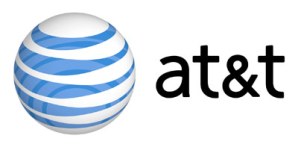
In a surprise move, AT&T has announced it has inked a deal to buy T-Mobile USA from Deutsche Telekom in a deal valued at $39 billion. AT&T is currently the second-largest mobile operator in the United States, and T-Mobile USA is the fourth largest. If approved, the deal will reduce the number of major mobile operators in the U.S. to three — Verizon Wireless, AT&T, and Sprint — and make AT&T the largest wireless operator in the nation.
“This transaction represents a major commitment to strengthen and expand critical infrastructure for our nation’s future,” said AT&T chairman and CEO Randall Stephenson, in a statement. “It will improve network quality, and it will bring advanced LTE capabilities to more than 294 million people.”
AT&T will finance the deal with about $25 billion in cash, with the rest of the deal coming from a company stock handed over to Deutsche Telekom, giving the German phone company roughly an eight percent stake in AT&T. Deutsche Telekom will also get one seat on AT&T’s board of directors. The finances of the deal are somewhat flexible: If AT&T wants, it can put up to $4.2 billion more in cash into the deal to reduce Deutsche Telekom’s stock holding in the company; however, Deutsche Telekom is guaranteed at least a five percent stake in AT&T. AT&T will also be assuming no debt from T-Mobile.
AT&T is touting the deal as a significant win for customers, noting that taking over T-Mobile USA’s physical infrastructure will, in some cases, increase the number of cell towers AT&T operates in some major markets by as much as 30 percent. That should be a big benefit to AT&T, which, since the launch of the original iPhone back in 2007, has been severely criticized by many mobile users for its network coverage.
AT&T’s and T-Mobile’s network are both based on GSM technology, and both have been working on implementing 4G LTE services; however, while T-Mobile touts its HSPA+ offerings as “4G” networking, it has lacked the spectrum licenses to be a major player in the coming LTE market. Adding T-Mobile’s licenses to AT&T’s makes the combined company a major player in the 4G spectrum game.
Left out in the cold by the acquisition is Sprint, which has reportedly been talking with T-Mobile about a merger or acquisition for some time. Although Sprint and T-Mobile don’t use compatible phone technology, the company’s spectrum licenses are attractive to each other—and even though Sprint is already offering 4G WiMax-based services, friction with Clearwire and market forces also have the company eyeing LTE.
The deal has been approved by the boards of both companies, and now must seek approval from communications and antitrust regulators. The companies expect the acquisition to close in about a year.


